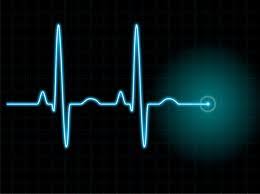An ECG (electrocardiogram) records the electrical activity of your heart at rest. It provides information about your heart rate and rhythm, and shows if there is enlargement of the heart due to high blood pressure (hypertension) or evidence of a previous heart attack (myocardial infarction). However, it does not show whether you have asymptomatic blockages in your heart arteries or predict your risk of a future heart attack. The resting ECG is different from a stress or exercise ECG or cardiac imaging test. You may need an ECG test if you have risk factors for heart disease such as high blood pressure, or symptoms such as palpitations or chest pain. Or you may need it if you already have heart disease. But in other cases, you may think twice about having this test.



 Contact Us
Contact Us






 Hospitals
Hospitals
 Doctors
Doctors
 Diagnostic
Diagnostic
 Pharmacy
Pharmacy
 Health Tips
Health Tips
 Blog
Blog

























Comments